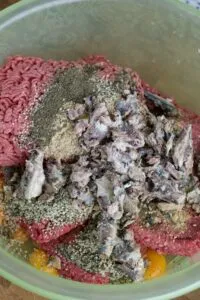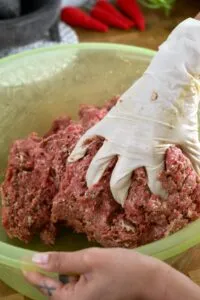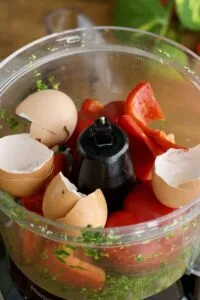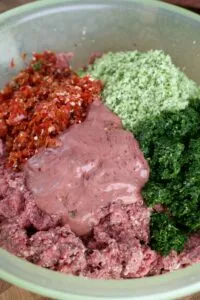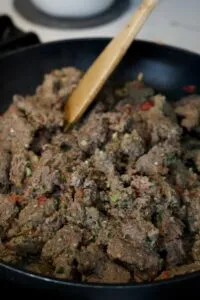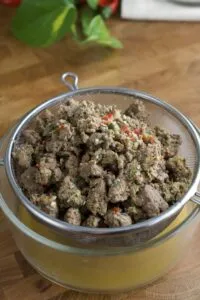Creating homemade dog food is a rewarding way to ensure your canine companion receives optimal nutrition. By selecting the best ingredients, you can tailor meals to your dog’s specific needs, promoting longevity and vitality. This guide, inspired by veterinarian-recommended practices, delves into the essential components of a balanced homemade diet for your dog, focusing on the Best Ingredients For Homemade Dog Food.
The Foundation of a Healthy Homemade Diet
Transitioning to homemade dog food allows you unparalleled control over your dog’s diet. It’s about more than just convenience; it’s about proactively managing your dog’s health. Numerous pet owners have shared how switching to a carefully prepared homemade diet has significantly improved their dogs’ coat quality, dental health, and overall energy levels. While the initial investment might seem higher than commercial kibble, the long-term benefits and potential savings on veterinary bills are substantial. A healthy diet is the cornerstone of good health.
Why Choose Homemade Dog Food?
Many owners choose homemade dog food for health reasons, but it also offers practical advantages. The ability to prepare meals in bulk, freeze them, and thaw as needed simplifies feeding routines. For instance, preparing around 11 pounds of uncooked food can sustain two small adult dogs for nearly three weeks. Furthermore, this foundational recipe can be adapted. By substituting ground beef with ground turkey or chicken and adding extra beef liver, you can enhance iron, zinc, and protein content, offering your dog delicious variety while maintaining nutritional completeness.
Determining the Right Portion Size for Your Dog
Before embarking on your homemade dog food journey, it is crucial to consult with your veterinarian. They can provide precise guidance on the appropriate amount of food your dog needs daily, typically calculated between 2-3% of their total body weight. For example, a 12-pound dog fed at 2.5% of their body weight would require approximately 0.3 pounds of food daily, which translates to about 4.8 ounces. This daily allowance can then be divided into two meals.
Understanding Nutritional Value
The homemade dog food recipe discussed here contains approximately 40 calories per ounce. For those interested in the science behind these ingredients, referencing resources from veterinarians like Dr. Karen Becker and Rodney Habib can offer deeper insights into the nutritional benefits of each component. Their work often highlights the importance of balanced macronutrients and micronutrients for canine health.
Cooked vs. Raw: Making the Right Choice
This recipe can be adapted for both cooked and raw feeding styles. If opting for a cooked meal, the key is to cook it gently without any added oil. Avoid searing the meat; instead, cook it over low heat until just done. This can be done by forming patties, larger chunks, or mincing the mixture. Using a stainless steel pan requires a specific technique: preheat the pan for at least three minutes. Test its readiness by sprinkling a few water droplets; if they dance and sizzle, the pan is ready. Then, reduce the heat to the lowest setting and allow the pan to cool slightly before adding the food. This ensures gentle cooking.
The Art of Gentle Cooking
When gently cooking homemade dog food, the goal is to preserve nutrients while ensuring safety. Overcooking can diminish the beneficial properties of ingredients. For those who might be seeking alternatives or additional information on feeding sick dogs, resources like what to give a sick dog to eat can offer valuable insights into supplementary dietary choices during periods of illness.
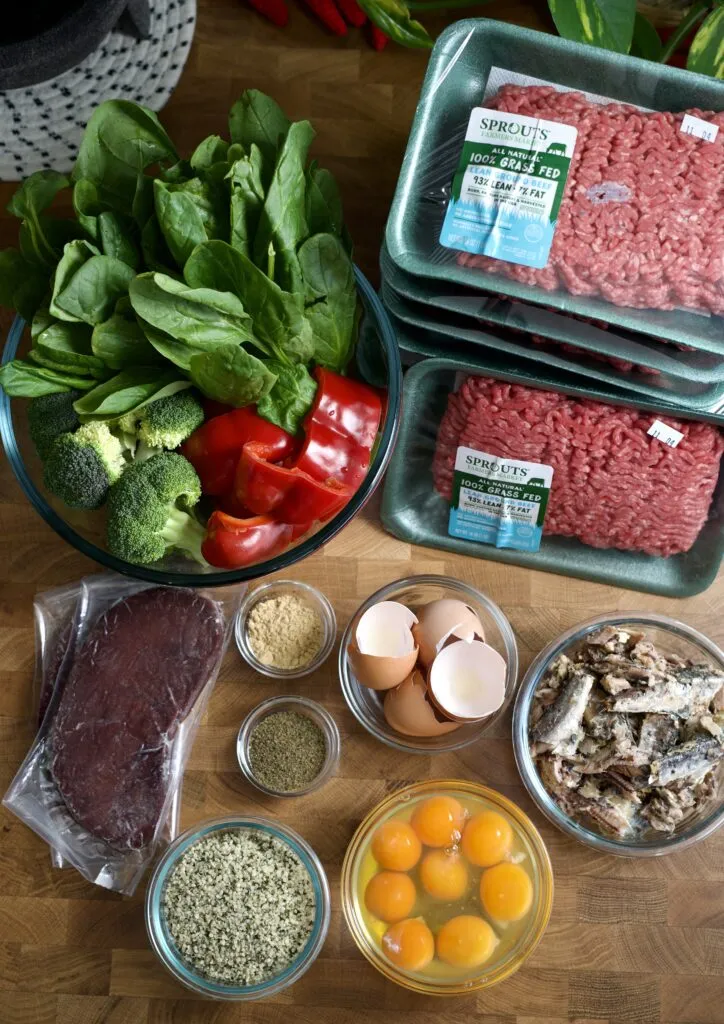
Essential Ingredients for Homemade Dog Food
The selection of high-quality ingredients is paramount when preparing best ingredients for homemade dog food. Each component plays a vital role in fulfilling your dog’s nutritional requirements.
Very Lean Ground Beef or Poultry: This serves as the primary protein source. Lean meats are crucial due to dogs’ high amino acid requirements. While ground chicken and turkey are excellent alternatives, they are naturally lower in iron and zinc compared to beef. To compensate, an increased amount of beef liver is recommended. For dogs requiring specific dietary considerations, such as those with digestive upset, exploring options like what can i feed my dog when he’s sick can provide helpful alternatives.
Hempseed: An exceptional source of essential fatty acids, including omega-3 and omega-6, hempseed helps balance the fat profile of the diet. If using hempseed oil, extreme caution is advised when cooking, as high heat can alter its flavor profile negatively for dogs.
Sardines: Canned sardines in water are a valuable source of vitamins E and D. Alternatively, cod liver oil can be used. Ensure the sardines are packed in water, not oil, to avoid excessive fat.
Ground Ginger: This spice is rich in manganese, which supports the health of connective tissues, including ligaments, tendons, joints, and muscles.
Kelp Powder: Packed with iodine, kelp powder is highly beneficial for dental and coat health. It can also contribute to fresher breath.
Eggs and Eggshells: Eggs are a good source of folic acid and vitamin B12. The eggshells, when finely ground, provide an excellent source of calcium for adult dogs, though they are not recommended for puppies.
Beef Liver: Essential for providing copper, zinc, and iron, beef liver is a nutrient-dense organ meat. Frozen, pre-portioned packages are convenient for regular use.
Broccoli, Red Bell Pepper, and Spinach: These vegetables contribute valuable antioxidants, phytonutrients, enzymes, and fiber. However, spinach should be omitted for senior dogs with kidney issues due to its oxalate and sodium content. For healthy dogs, the small amounts typically used are safe.
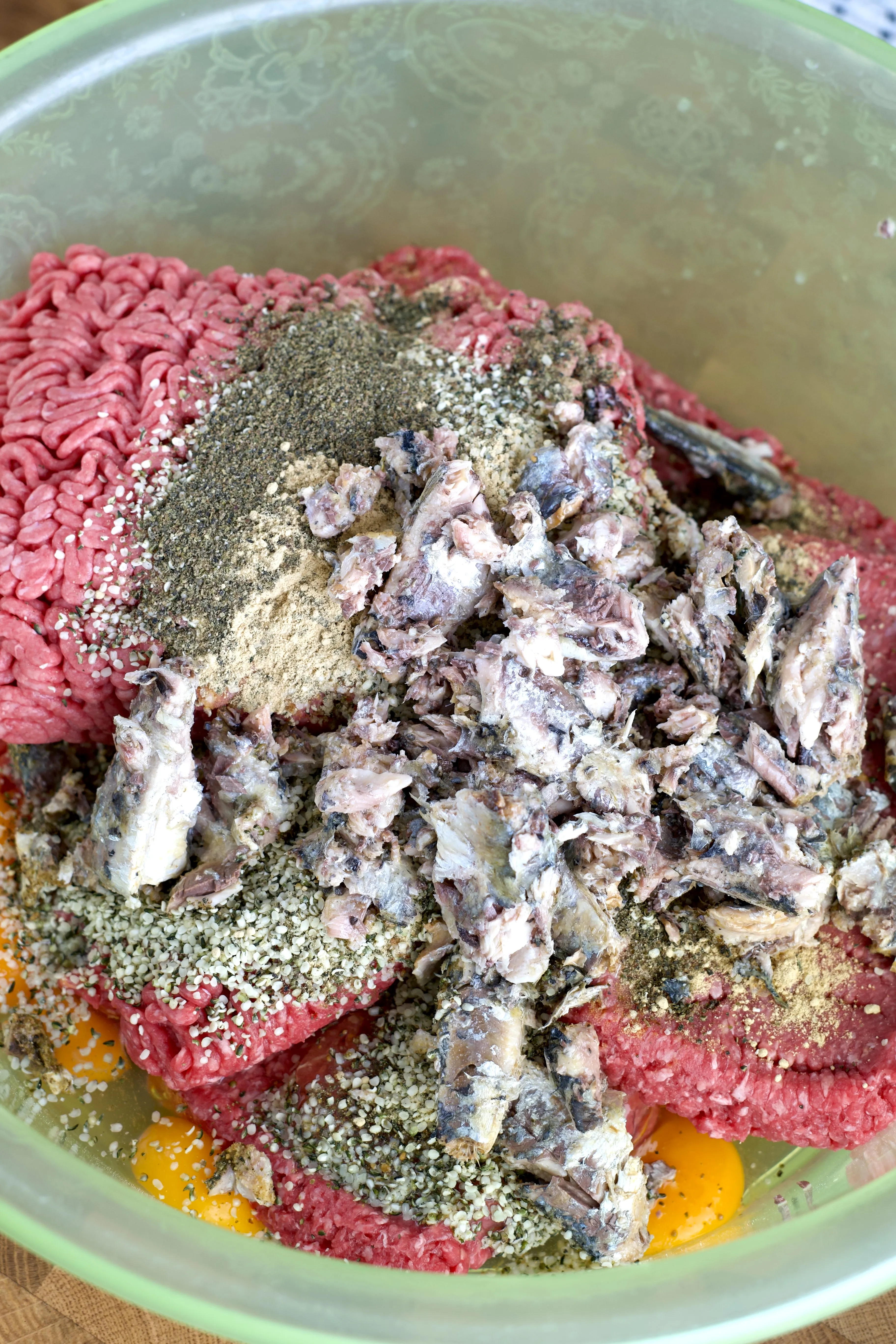
Step-by-Step Preparation Guide
Creating this balanced homemade dog food is straightforward. The recipe card at the end provides precise measurements and instructions.
Combine Wet Ingredients: Begin by mixing the ground meat (beef, turkey, or chicken), eggs, kelp powder, ground ginger, hempseeds (or hempseed oil), and sardines. If using, incorporate pumpkin puree for added digestive support. Drain the water from the sardines and break them up to ensure even distribution. Set aside half of the eggshells.
Process Vegetables and Liver: In a food processor, blend the vegetables (broccoli, red bell pepper, spinach), eggshells, and beef liver until finely chopped. If your food processor is small, you may need to process these ingredients in batches. A food processor with a side scraper can be particularly helpful for ensuring all ingredients are incorporated.
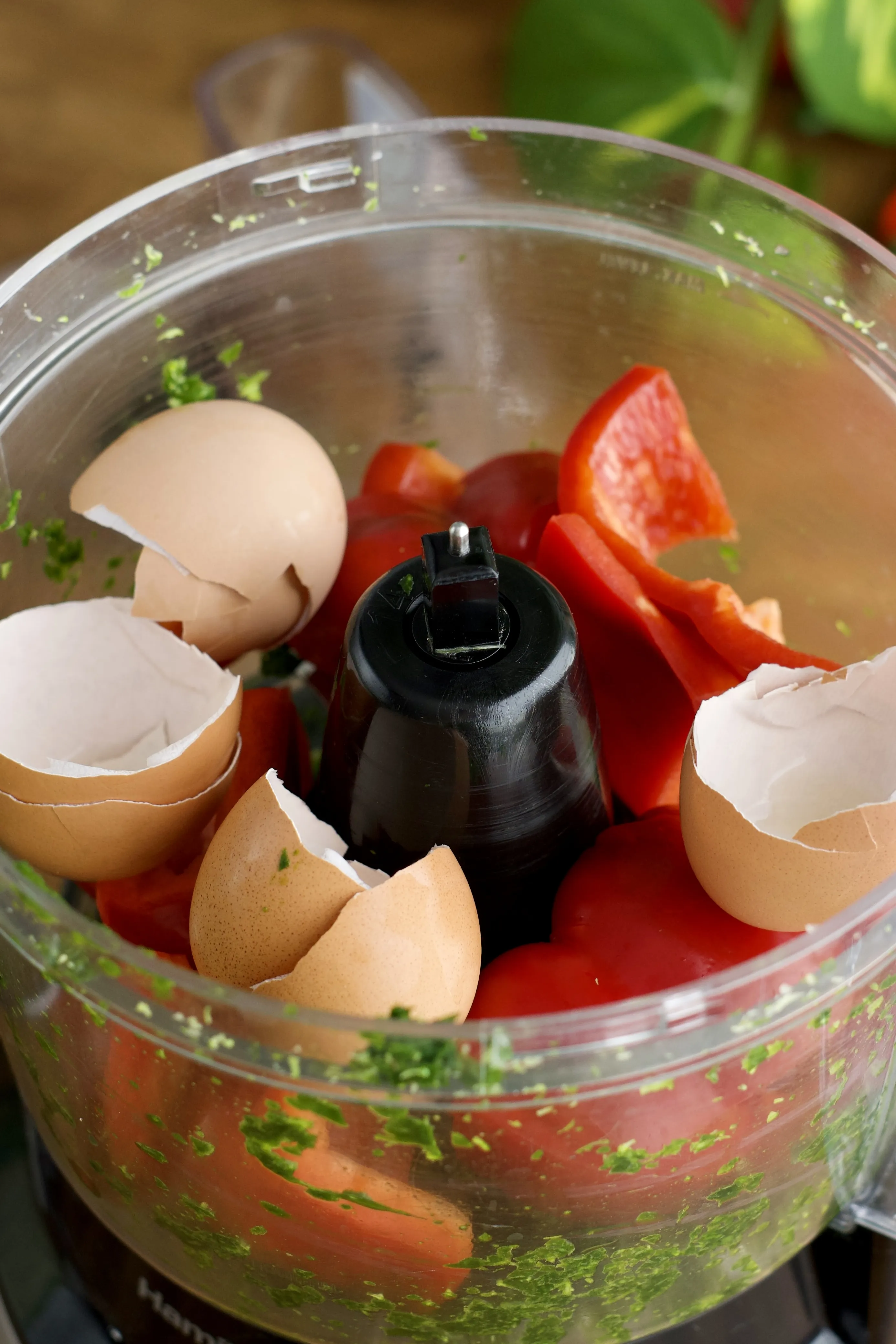
- Combine All Ingredients: Add the processed vegetable and liver mixture to the ground meat mixture and mix thoroughly until well combined.
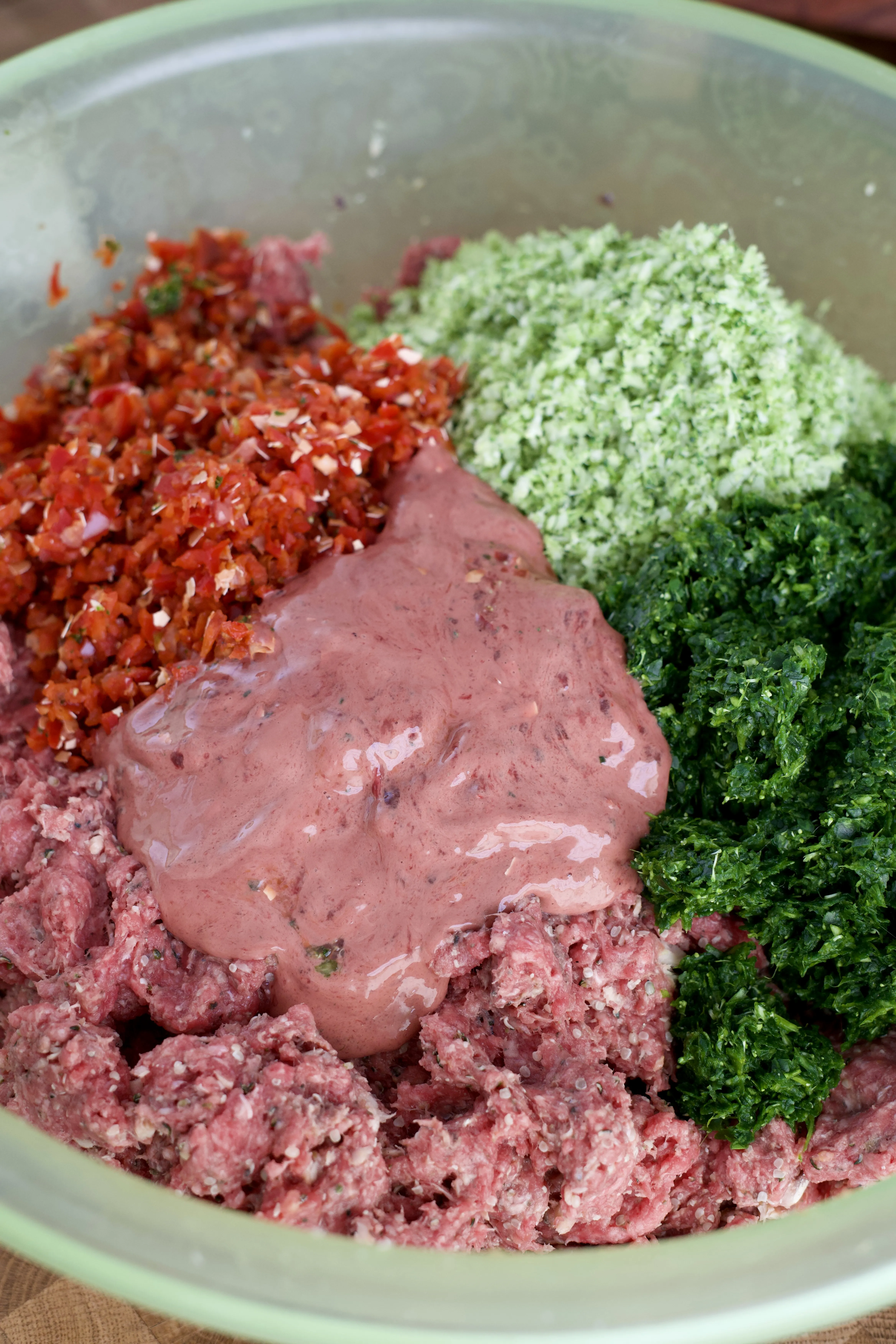
Storing and Serving Your Homemade Dog Food
Proper storage is key to maintaining the freshness and safety of your homemade dog food.
Portioning: Divide the food into portions according to your dog’s daily dietary needs. This ensures accurate feeding and simplifies meal preparation.
Refrigeration: Homemade dog food can be stored in the refrigerator for a few days. It is generally advised not to keep cooked dog food refrigerated for more than four days.
Freezing: For longer storage, freeze the portions in airtight containers or reusable freezer bags. Uncooked homemade dog food can remain in the freezer for several weeks. Utilizing reusable options can also help reduce plastic waste.
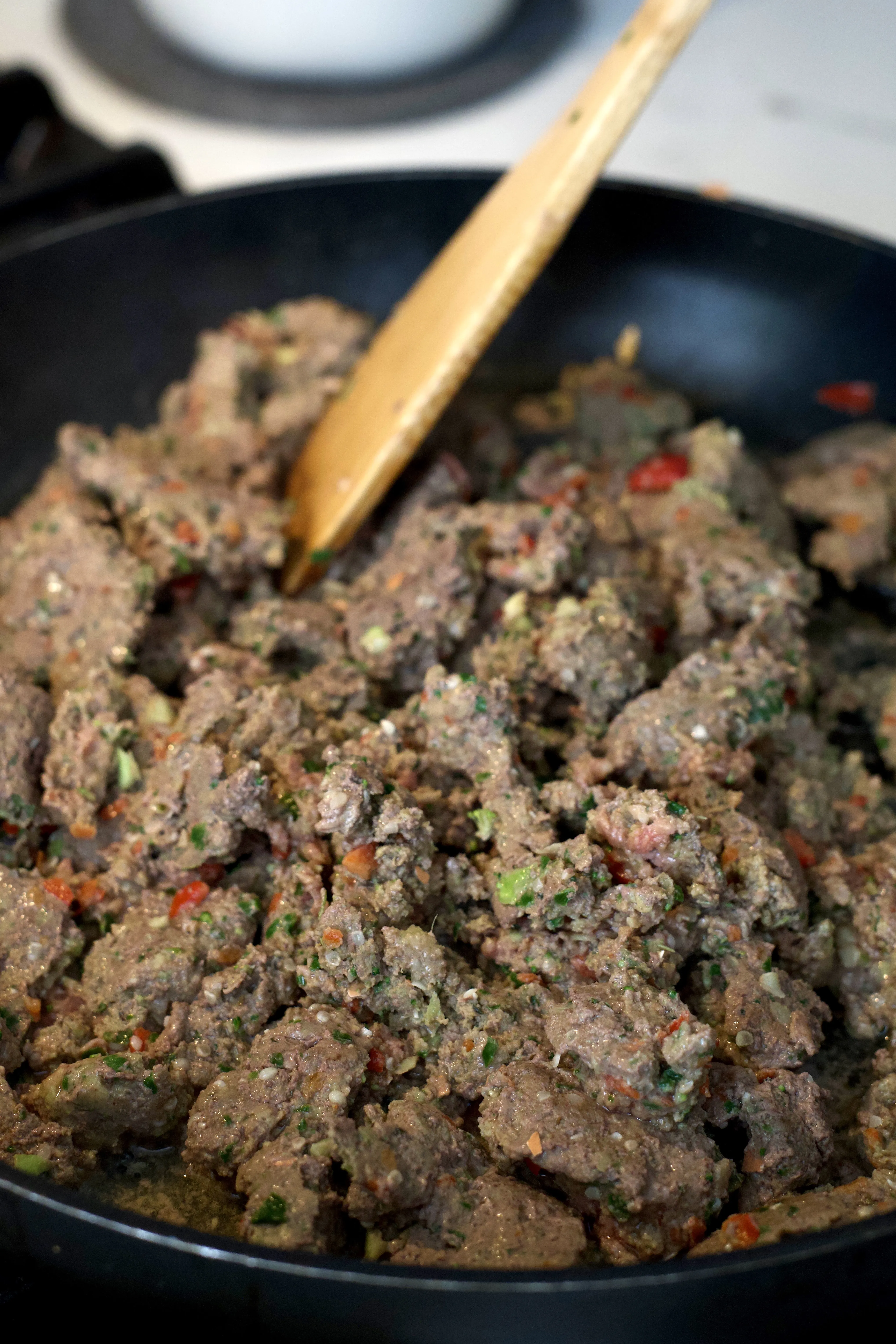
- Serving: The food can be served raw or gently cooked. If cooking, use a nonstick pan on low heat without oil. Avoid searing the meat; cook until just done. For recipes that involve specific ingredients like oil, refer to guidance on banana dog treats without peanut butter for an understanding of how to handle ingredients with specific preparation needs to avoid spoilage or undesirable taste.
Meet Our Furry Friends
Meet Remy and Leeloo, the inspiration behind this balanced diet. Their mother-daughter bond is a testament to the joy pets bring into our lives. The author’s commitment to feeding them the best possible food stems from past experiences, highlighting the profound impact of nutrition on a dog’s well-being. The positive feedback from readers whose dogs have benefited from this recipe reinforces the value of dedicating time and effort to preparing nutritious homemade meals.
Exploring Additional Healthy Options
For those looking to supplement their dog’s diet with healthy treats, consider exploring recipes that focus on wholesome ingredients. For instance, exploring the benefits of green-lipped mussels for joint health can be a valuable addition. These nutrient-rich mussels are known for their anti-inflammatory properties, offering relief for dogs prone to joint pain.
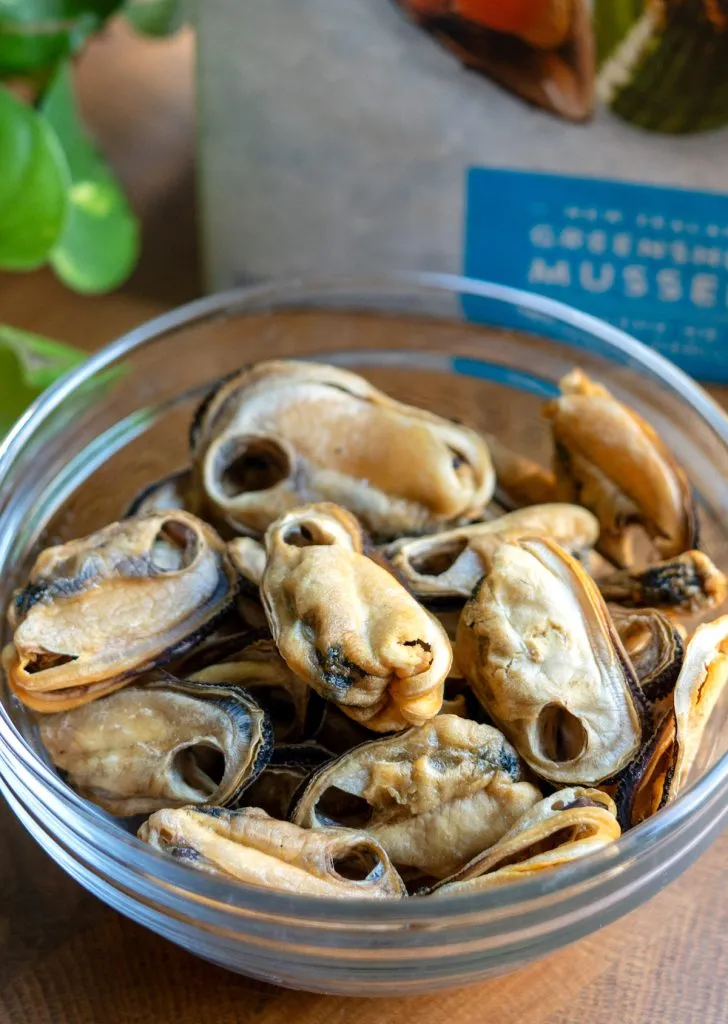
Balanced Dog Food Recipe
Prep Time: 20 minutes
Cook Time: 10 minutes
Total Time: 30 minutes
Servings: 10 lbs
Ingredients
- 7 lbs 90% lean ground beef, or lean ground turkey or chicken
- 1.5 cups hempseeds, or 1/3 cup hempseed oil
- 16 oz canned sardines in water, or 4 tsp cod liver oil
- 4 tsp ground ginger
- 4 tsp kelp powder
- 8 eggs, pasture-raised
- 4 egg shells
- 15 oz pumpkin puree, NOT pumpkin pie mix!
- 8 oz beef liver, 12 oz if using ground turkey or chicken instead of ground beef
- 8 oz broccoli
- 8 oz spinach, omit if your dog has kidney issues
- 8 oz red bell pepper
Instructions
- Begin by mixing together the ground beef, eggs, kelp powder, ground ginger, hempseed (or hempseed oil), sardines, and pumpkin puree (if using). Drain the water from the sardines before adding them. Save half (4) of the eggshells and set them aside.

- Break up the sardines as much as you can so that they are evenly distributed when mixed.

- Next, process the veggies, eggshells, and beef liver. You may need to do this separately if your food processor can’t fit everything. Process everything separately, except for the bell pepper and eggshells—process those together.

- Add the blended ingredients to the beef and mix until well combined.

- Portion out the food according to your dog’s daily food intake requirements. The dog food will be good in the freezer for weeks, but only for a few days in the fridge. Portion accordingly. Consider using reusable freezer bags to reduce plastic waste.
- The food is ready to serve raw, or you can gently cook it. Cook without any oil on a nonstick pan on low heat. Do not try to sear the meat over high heat—you want to gently cook it until it is just done. If using hempseed oil, be careful about “gently” cooking it to avoid an unpleasant taste for the dogs.

- Drain the fat and let it cool completely before storing in the fridge, for up to 4 days.

Notes
This recipe yields approximately 11-12 lbs of food, lasting two 10-lb dogs around 3 weeks. Always consult your veterinarian or a pet nutritionist regarding the correct portion sizes for your individual dog. The author now exclusively feeds this recipe to their dogs.
Nutrition information is automatically calculated and should be used as an approximation.

